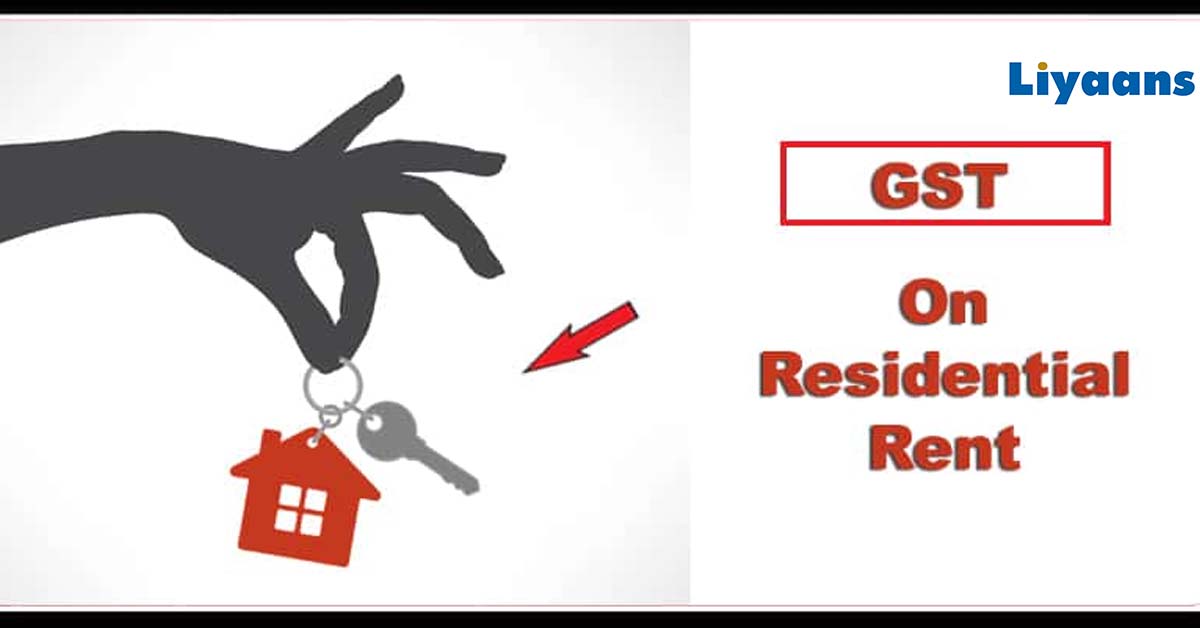Who has to pay 18% GST on residential rentals?
Posted Under Home Buying Tips, Real Estate Rules & Regulations, GST On 30 July, 2022
Union Finance Ministry Nirmala Sitharaman on July 13th, 2022 issued Review of central tax announcement wherein it brought residential rentals under GST ambit from July 18th 2022 onwards with immediate effect.
The previous June 2017 order, bringing residential dwelling rented to a registered person under 18% GST tax payment.
who is living in a rented flat and doesn't have a registered GST number, won't have to pay 18 of GST. Meaning, that a salaried family staying in a rented house need not be needed to pay 18 GST on settlements to the government if he's not a listed person.
As per the new July 2022 notification, when a residential dwelling is been given for rent to a person registered under GST it would be subjected to GST at the rate of 18%.
The 18% GST on residential rentals depends on case to case basis. For example, builders accommodate tenants of redevelopment projects in privately rented flats. In this, the case will the builders have to bear the 18% GST is questionable.
When you comes in the GST ambit?
The lessee who takes a residential property on rent for the purpose of a guest house or for providing to their employee or directors would be subjected to tax. Supposedly, if a particular company takes a few flats on rent for its employee, so now as per the new obligation, it also needs to show the payment of 18% GST on the rentals to the government while filing the returns.
Who gets a GST number?
Any person who makes a supply of service more than 20 Lakhs and a supply of goods more than 40 Lakhs is liable for mandatory registration. A few states have different thresholds for registration.
What is the fear of this new corrective?
who is registered under GST and has taken a residential property on rent for his "personal use" and not as a business expenditure, would also be subjected to tax. Stakeholders want immediate government intervention.
What does the industry think about residential rentals 18% GST?
The residential rental growth at absolutely 2% to 3% in comparison to commercial rental yield which is highly attractive at 8% to 10%. Imposing an 18% GST on residential rentals is detrimental as it will hurt the investments in residential properties. It shall be applicable to the individual liable to be registered under the Act of GST and thus the onus of paying tax lies on the lessee and not the lessor. High GST will also demotivate corporate entities to further offer rental housing to their employees, which shall impact institutional rental business.
By LNN (Liyaans News Network)
-
January 2026 (3)
-
November 2025 (3)
-
October 2025 (2)
-
September 2025 (1)
-
August 2025 (4)
-
July 2025 (2)
-
June 2025 (4)
-
May 2025 (3)
-
March 2025 (2)
-
February 2025 (5)
-
January 2025 (1)
-
December 2024 (3)
-
November 2024 (1)
-
October 2024 (2)
-
September 2024 (1)
-
August 2024 (1)
-
July 2024 (5)
-
June 2024 (2)
-
May 2024 (6)
-
March 2024 (2)
-
February 2024 (1)
-
January 2024 (3)
-
December 2023 (4)
-
November 2023 (3)
-
October 2023 (4)
-
August 2023 (4)
-
July 2023 (2)
-
June 2023 (4)
-
May 2023 (2)
-
April 2023 (2)
-
March 2023 (2)
-
January 2023 (1)
-
December 2022 (1)
-
November 2022 (1)
-
October 2022 (3)
-
September 2022 (3)
-
August 2022 (4)
-
July 2022 (5)
-
June 2022 (7)
-
May 2022 (2)
-
April 2022 (3)
-
March 2022 (6)
-
February 2022 (2)
-
January 2022 (7)
-
December 2021 (2)
-
November 2021 (4)
-
October 2021 (3)
-
September 2021 (4)
-
August 2021 (3)
-
July 2021 (3)
-
May 2021 (2)
-
April 2021 (1)
-
February 2021 (1)
-
January 2021 (1)
-
November 2020 (1)
-
October 2020 (1)
-
September 2020 (1)
-
August 2020 (3)
-
July 2020 (6)
-
June 2020 (4)
-
May 2020 (5)
-
April 2020 (5)
-
March 2020 (2)
-
February 2020 (3)
-
January 2020 (2)
-
December 2019 (4)
-
November 2019 (3)
-
October 2019 (1)
-
August 2019 (1)
-
July 2019 (1)
-
June 2019 (8)
-
May 2019 (5)
-
February 2019 (1)
-
January 2019 (1)
-
October 2018 (1)
-
September 2018 (3)
-
August 2018 (1)

